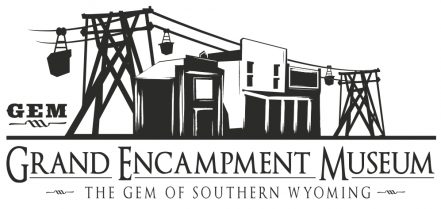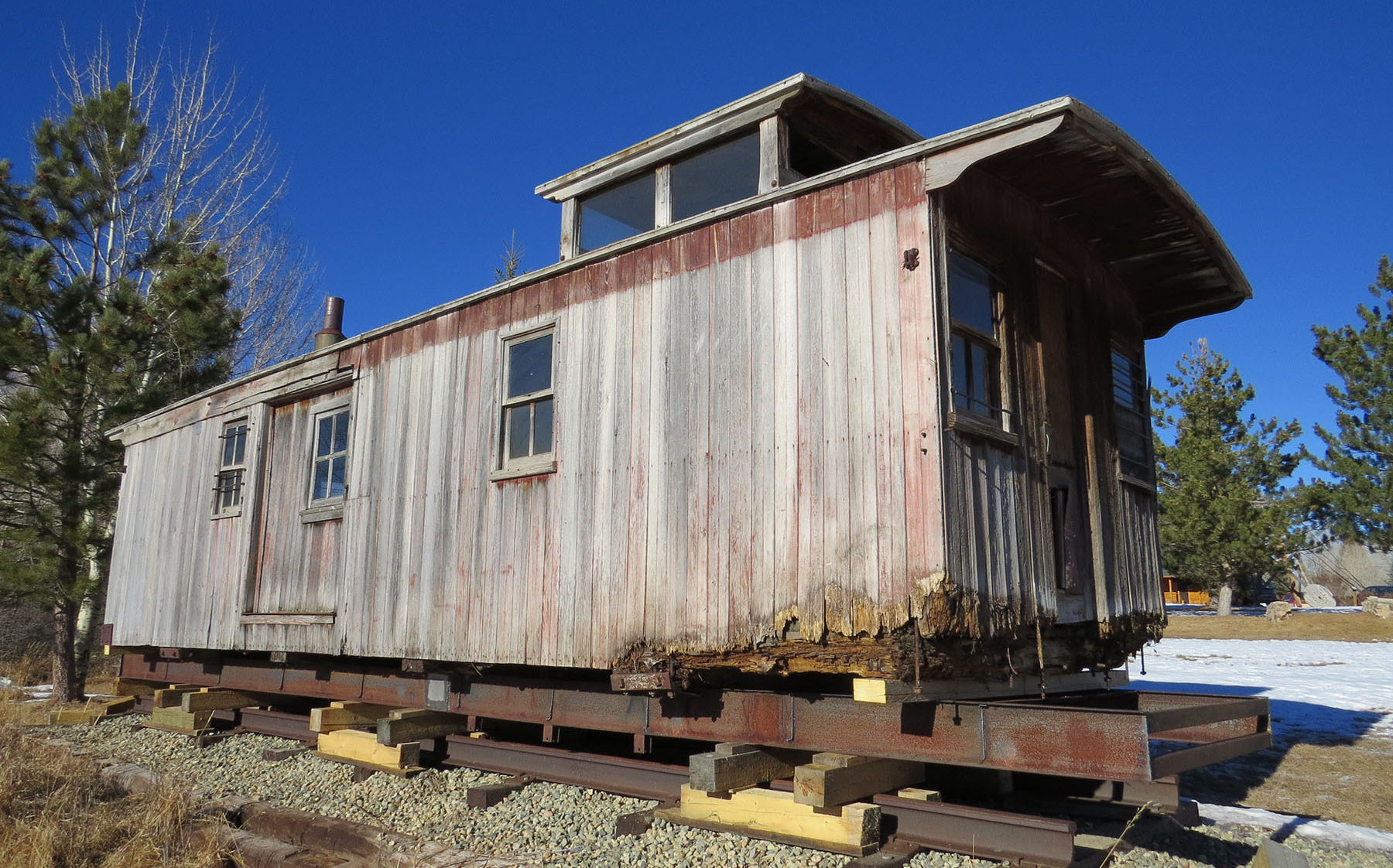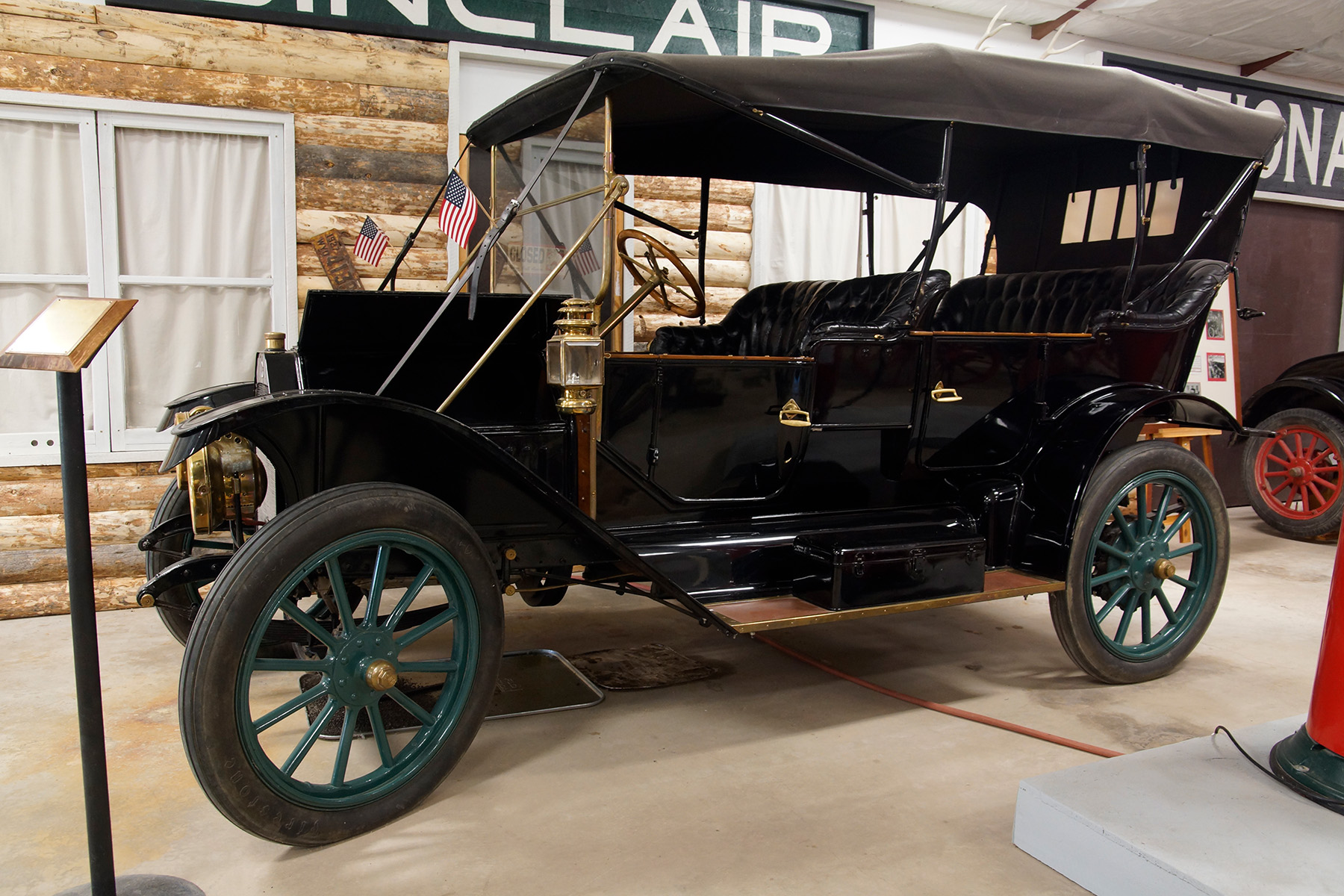Buildings & Exhibits
Buildings & Exhibits of the Grand Encampment Museum (GEM)
The Grand Encampment Museum has multiple buildings and exhibits to explore. Be prepared to spend some time enjoying our history and historical artifacts.
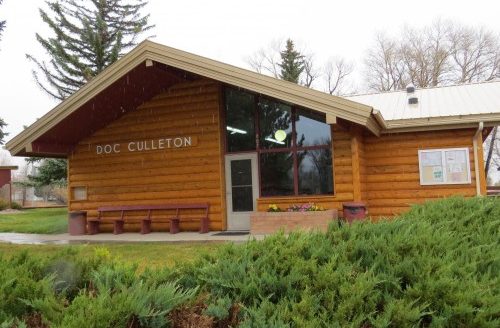
The Doc Culleton Interpretive Center is our main structure that houses many of our artifacts and our gift shop. Check in at this location first for details about all of our buildings/structures and tours. Inside details
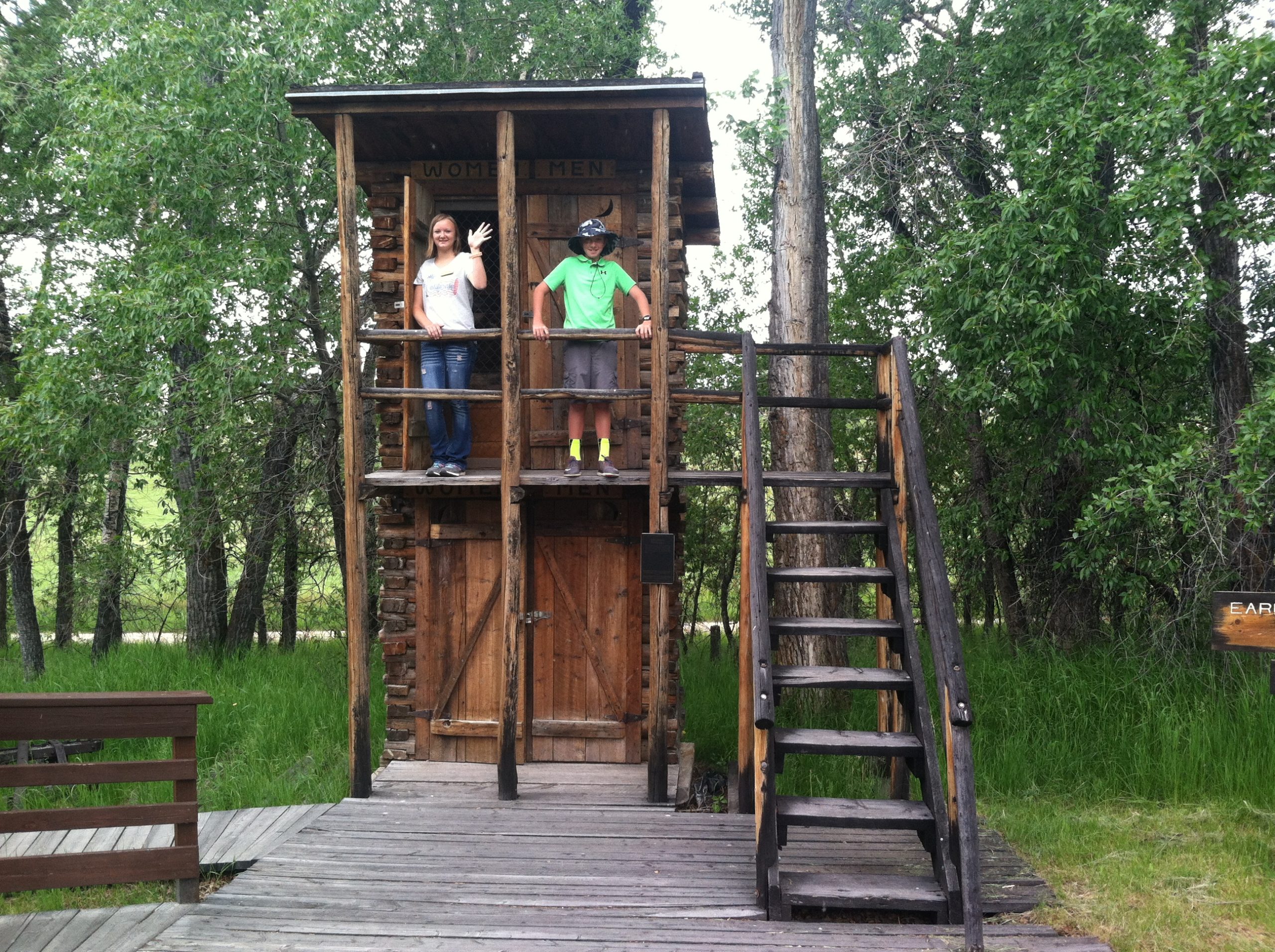
The world famous two story outhouse is a replica of the original located in this area of Wyoming. When it started to snow, they would lift up the bottom seats as seen on the lower right. Once spring came and all the snow melted, they cleaned out the whole thing and locked the top, for prankster sake, and went back to using the bottom. (more info)
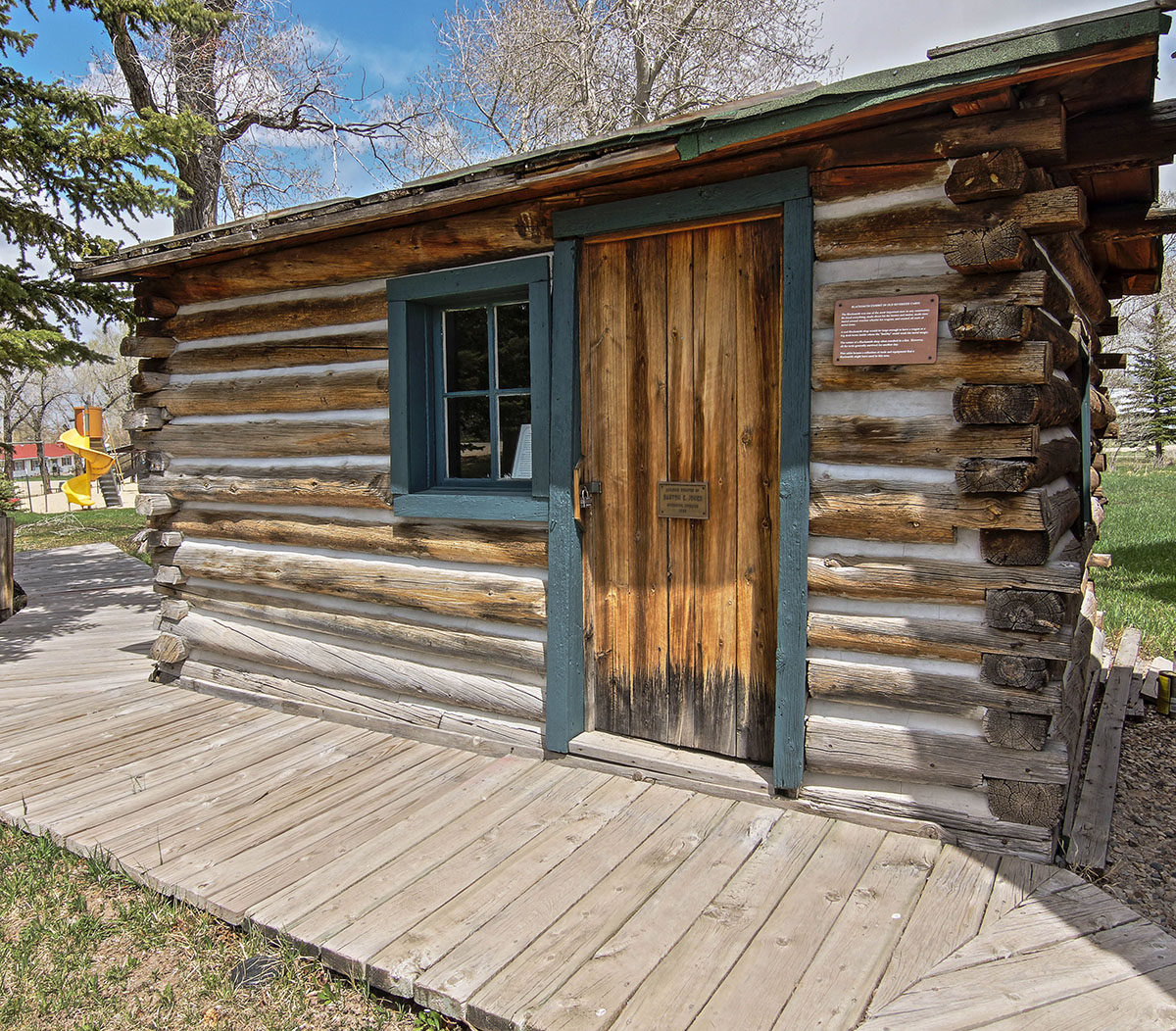
The log building was originally a cabin in Riverside. The blacksmith shop was an important feature of every early mining town. There were always horses to shoe & wagon wheels to shrink. (more info)
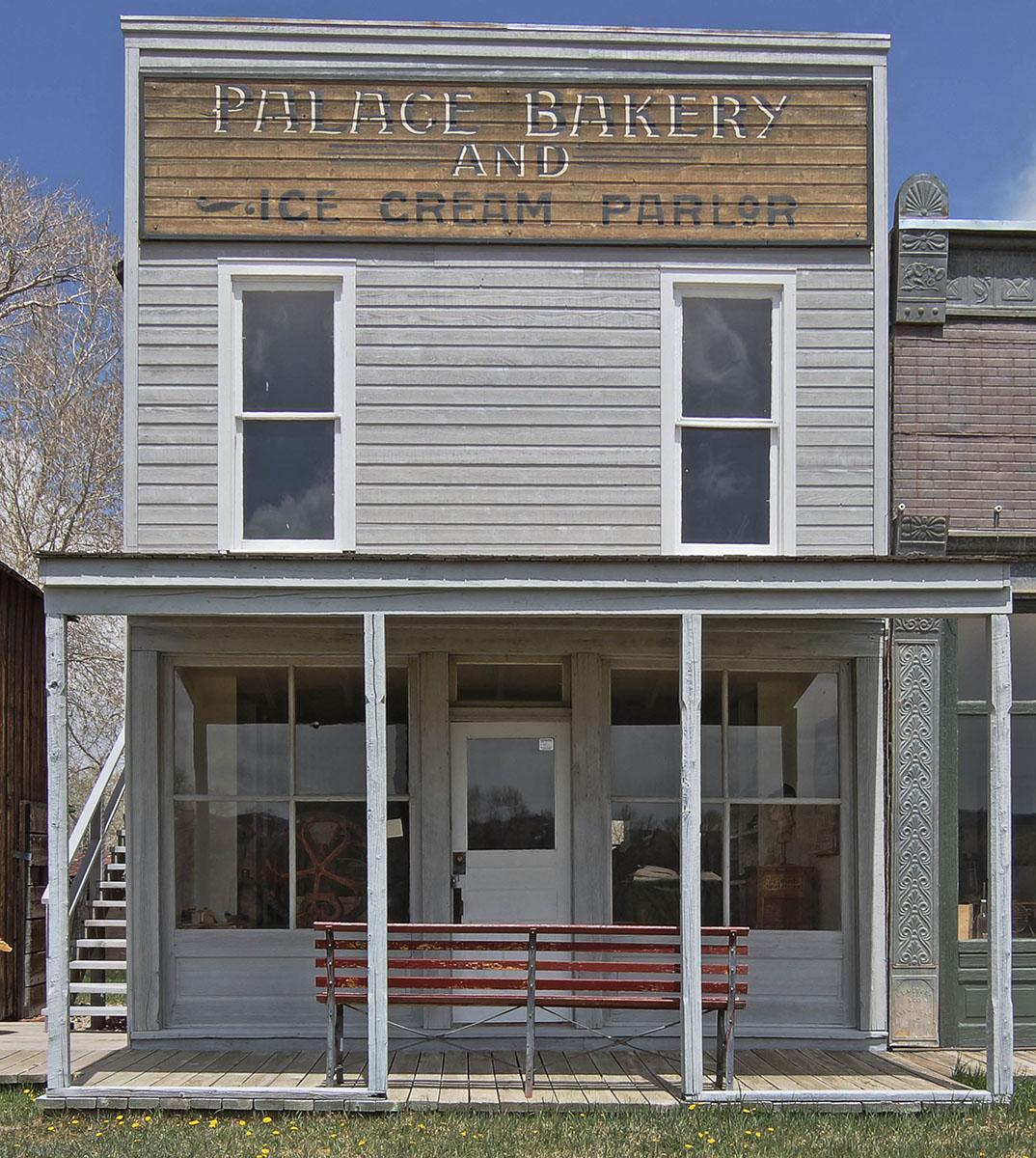
The Palace Bakery and Ice Cream Parlor was originally owned and operated by Mr. & Mrs. Koffman about 1800, on McCaffrey Ave. Upstairs was the Royal Neighbors of America Lodge in 1945. The lodge was sold for $50.00 to Robert Bechtel, who used it for a painting & sign lettering shop. Colonel Paul Bechtel eventually donated the building to the museum. (more info)
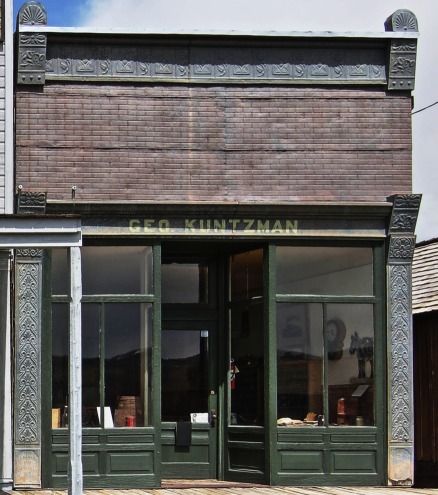
The Kuntzman Building was built in 1900 by George Kuntzman. This was his insurance office at the time. This was a very nice office to have because of it’s nice display windows. After this building was donated to the museum, we turned it into our saloon, really because it was the only building that we could get the tall back bar into. (more info)
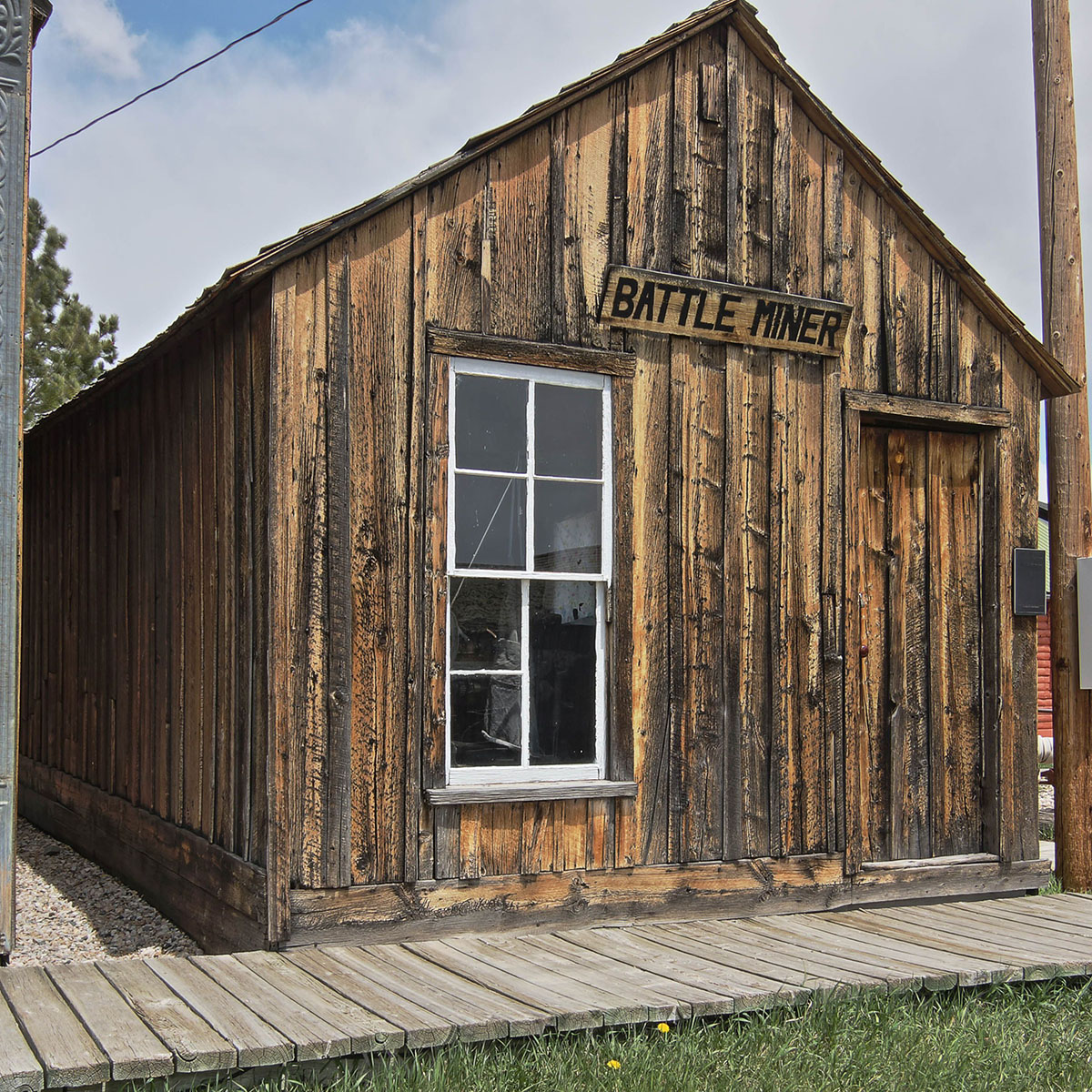
The Battle Miner is the only building left from the ghost town of Battle Lake. It was built on the Crest of the Continental Divide 12 miles West of Encampment. This was the home of George Eberhart in Battle Lake. In 1902 he moved this building to Encampment where he and his wife Josephine lived while their new home was being built. (more info)
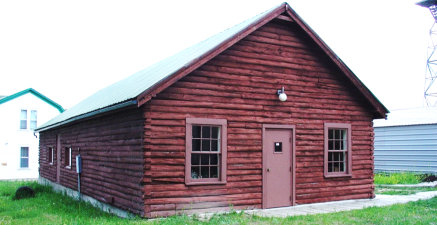
This is the Vo Ag Building that was built in 1935 by the Vocational Agriculture students from Encampment School, under the direction of instructor Wilbur Wood. The new school was built in ’91 and had no longer use for this building so they donated it to the museum. (more info)

This is the Livery Stable. We use this building to house all of our older means of transportation along with farming and ranching tools. (more info)
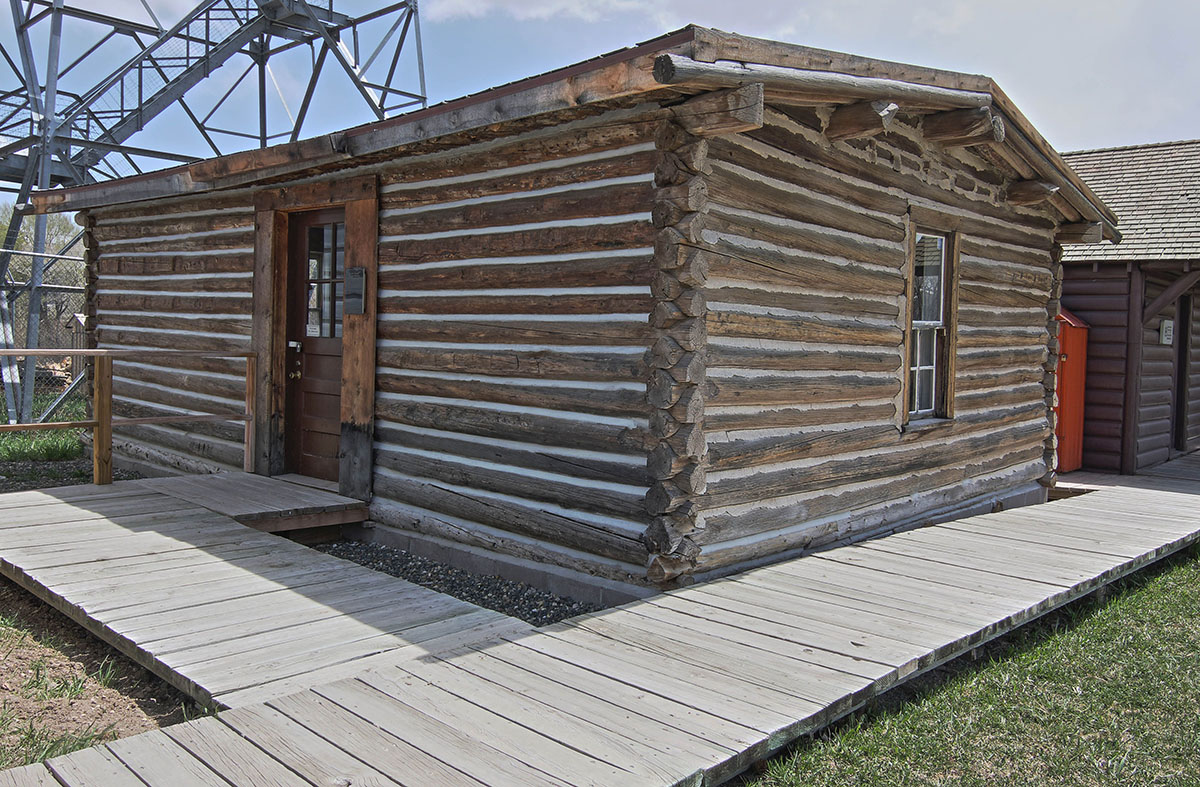
This is the Lake Creek Stage Station. William Brause built it on Lake Creek three miles North of Saratoga in the late 1870’s. Nettie & Charles Scribner bought the ranch in 1902. At one time there were 158 horses pastured here. (more info)
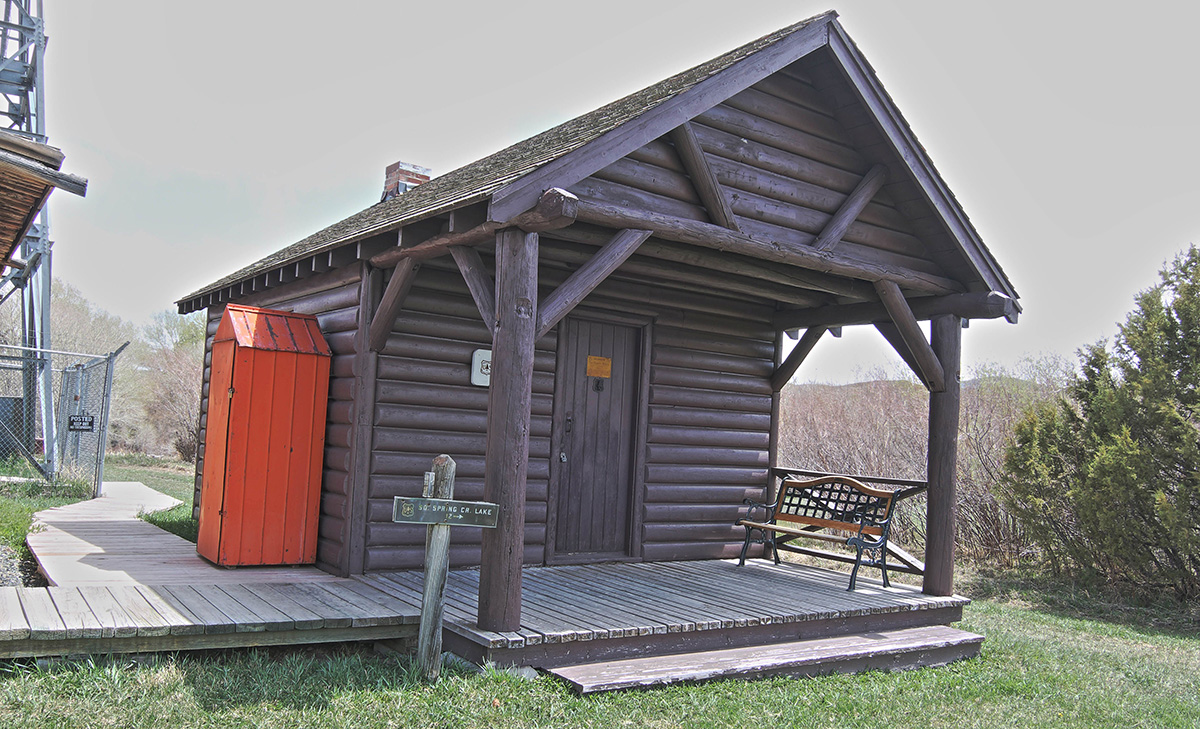
This is the Weber Springs FS Guard Station. It was built in 1940 and used by the Forest Service. There were 8 of these cabins on this side of the Sierra Madre Mountains. Usually, 2 men would come to stay at these cabins for about 2 weeks at a time, they did things like measure the growth of trees and watch for fires. (more info)
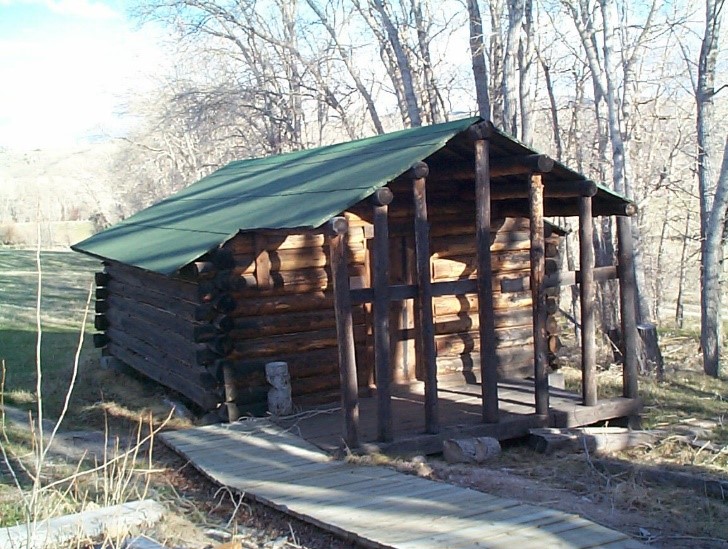
This is the Tie Hack Cabin. These cabins were located in what was called tie hack camps. There were usually 2-3 of these cabins in each camp along with a two-story outhouse and a cookhouse. They would sleep 6-8 men in one cabin. They cut logs all winter long which is how they earned their nickname as “Tie Hackers”. Once spring came and the snow melted, they hauled the logs to the river and rode them to Ft. Steele which is where they were then shipped to the train yards. (more info)

This is the Peryam House, it was built in 1886 by Guy Nichols and his nephew Ezra. After the Nichols moved out, the Peryams moved in. It was moved to Riverside, just a few miles away. This building was so big that we had to cut it in half to move it to its new location at the museum. (more info)

This is the Wolfard Schoolhouse. It was built in 1895 by William Henry Wolford. It was located out on their ranch. They had ten kids, nine boys, and one girl, and the one girl was the youngest! It was moved to the museum in June 1986. (more info)

The Aerial Tramway ran 16 miles between the smelter in Encampment, WY, and the Ferris Haggerty Mine up in the mountains. There were 375 wooden towers and 800 ore buckets. Each ore bucket could hold up to 700 lbs of copper ore. Every day the Ferris Haggerty produced fifty tons of copper ore. The smelter was built in 1902 and burnt down in 1907 for the third and final time. (more info)
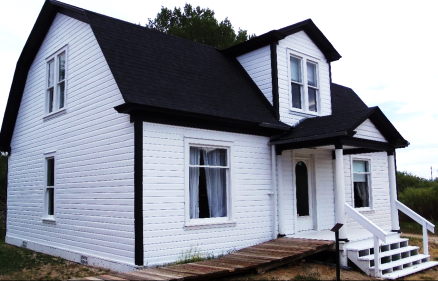
The Parkison House was home sweet home to one family instrumental in the growth of this area. (more info)
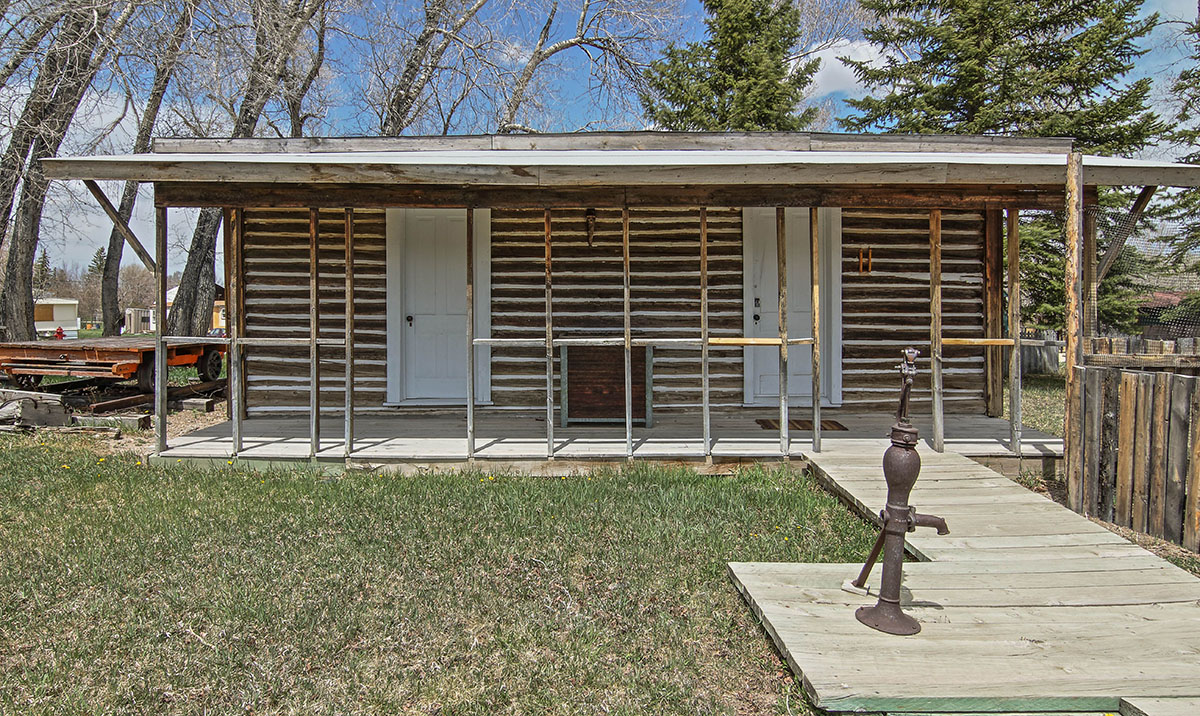
The Saratoga Cabin was built prior to 1890 by John Cluff. Mildred Needham lived in this cabin as a bride. Charley Fait & Lizzie Nichols were married in 1897 & this was their first home. (more info)
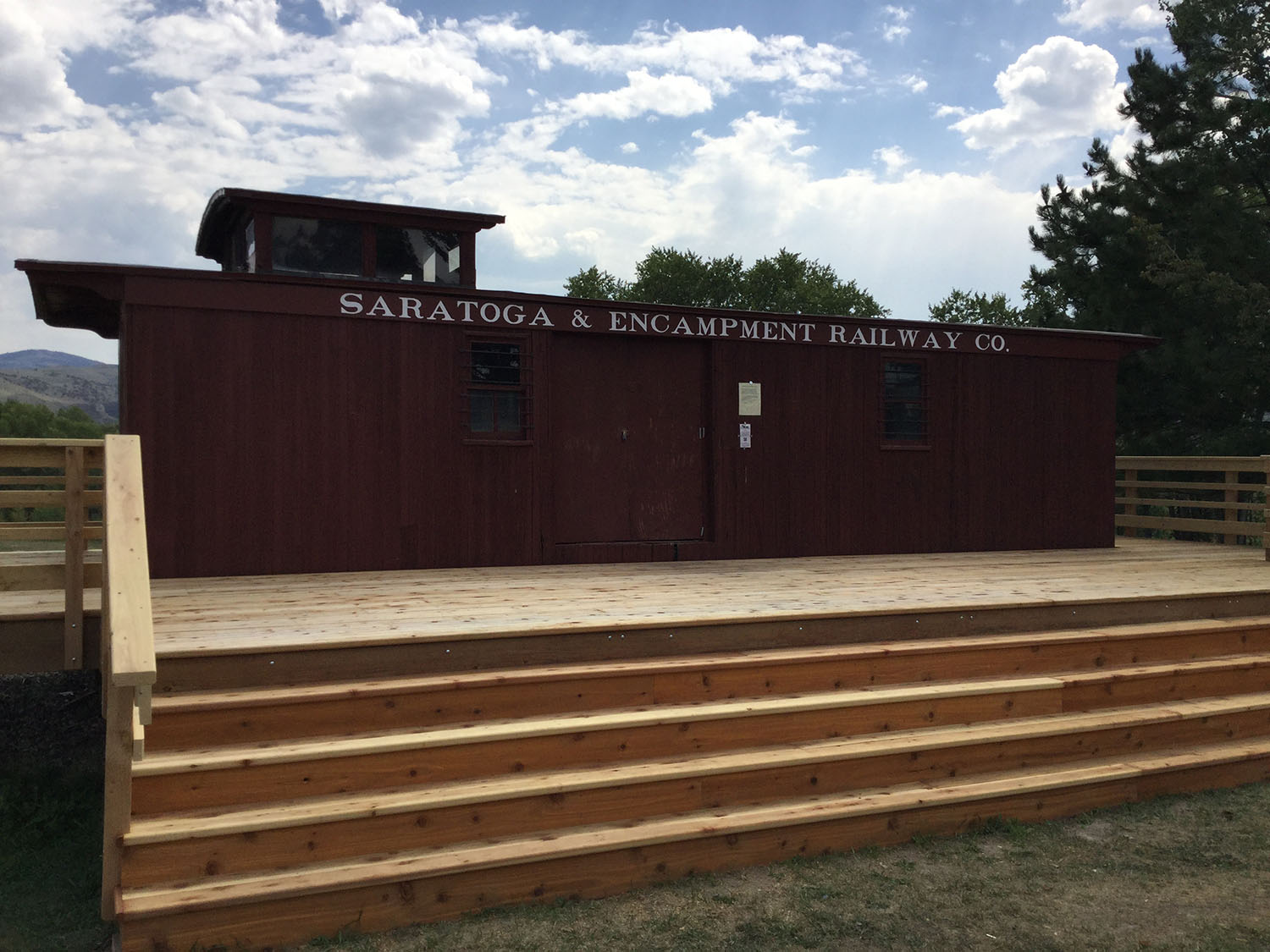
The Saratoga & Encampment Railway Company (S&E) was formed to haul goods to the Encampment smelter and mine from the Union Pacific Railroad at Walcott Junction. It then hauled copper ingots from the Encampment smelter back to the UPRR at Walcott Junction. Prior to the S&E construction, freight was unloaded onto docks and hauled 40 miles by wagon to Encampment and then onto other mines in the Sierra Madres. (more info)
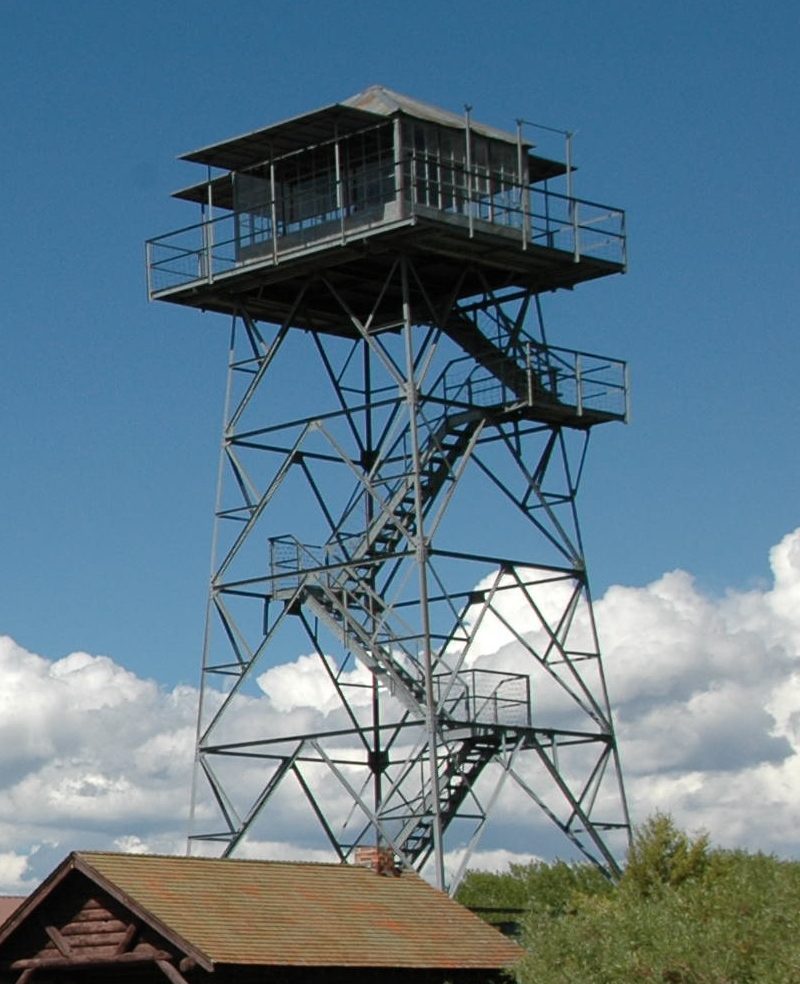
The U.S. Forest Service Fire Lookout Tower was originally located on Slash Ridge, near the Ryan Park area in the Snowy Range Mountains. It was built in 1947 and moved to the Museum in 1987. (more info)

The Higby Building was formerly a barn used by George Helwig, the Encampment City Marshal. He housed a light driving team here around 1908. (more info)
